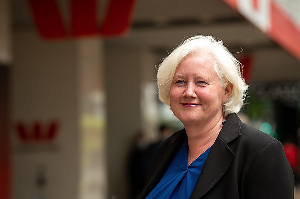FSCL has reported a complaint against an adviser following a client’s claim for breast cancer being declined. I recommend advisers read the full case on FSCL’s website because I found the report confusing, particularly regarding the question of standalone versus accelerated trauma cover.
According to FSCL, in 2016, the client had explained to her adviser that she wanted trauma cover to give her “full cover for cancer” after the death of her sister from breast cancer.
Apparently, there was discussion about standalone and accelerated trauma cover as the client was concerned about the cost (because the insurer had applied a 75% loading for family history of breast cancer).
The complainant’s recollection was that the adviser had told her both the standalone and accelerated versions offered the same benefits. This is likely correct.
If the insurer involved was one of the major insurers, the standalone and accelerated versions typically have the same definitions of ‘cancer’ (even though, being an acceleration of life cover, accelerated trauma cover is cheaper).
The case report of the adviser’s recollection of events shows the adviser was well aware of the client’s requirement for cancer cover following her sisters’ death. Apparently, the adviser recommended standalone trauma cover, but this was too expensive and according to FSCL, at some time, the adviser:
“…suggested a cheaper alternative called accelerated trauma cover. Although the cover had a 75% loading, it was cheaper than the standalone trauma policy. The adviser was sure he had explained to Madeline that it would be harder to claim under the accelerated trauma policy. “
If this is correct and this adviser did explain that accelerated trauma cover would be “harder to claim”, either a completely different accelerated trauma product, not covering stage one cancer, was substituted, or the adviser’s explanation was not correct.
According to the report, the client’s claim was declined even though she had Stage One breast cancer. The accelerated versions of, let’s call them ‘traditional comprehensive’ trauma covers, would likely have covered Stage One breast cancer in the same way standalone versions would have.
My suspicion is that due to client concerns about cost, the adviser recommended an accelerated version a completely different product, likely Severe Trauma Cover (either version of this, standalone or accelerated, includes the same cancer definition, which is not designed to pay benefits on Stage One breast cancer).
A report from the insurer concerned would have cleared this up.
Confusion regarding accelerated trauma cover aside, I think the adviser was lucky that this case occurred back in 2016, as there appears to have been no written records (the complaint was not upheld).
FSCL’s “Insights for consumers” confirms that advisers now have “stronger obligations to keep clear records of their recommendations than they did in 2016”.
The outcome of this complaint may well have been different if the current requirements applied.
Steve Wright – Has qualifications in economics, law, tax, and financial planning. He has spent 20 years in sales, product, and professional development roles with insurers. He is now independent and helping advisers navigate the new advice expectations.
This article is for information purposes only, its content is the writer’s opinion and intended to be of a general nature, does not take into account any person’s specific circumstances, and is not financial, legal, or other advice. It is recommended you seek advice from a suitable expert before taking any action in relation to anything contained in this article.



